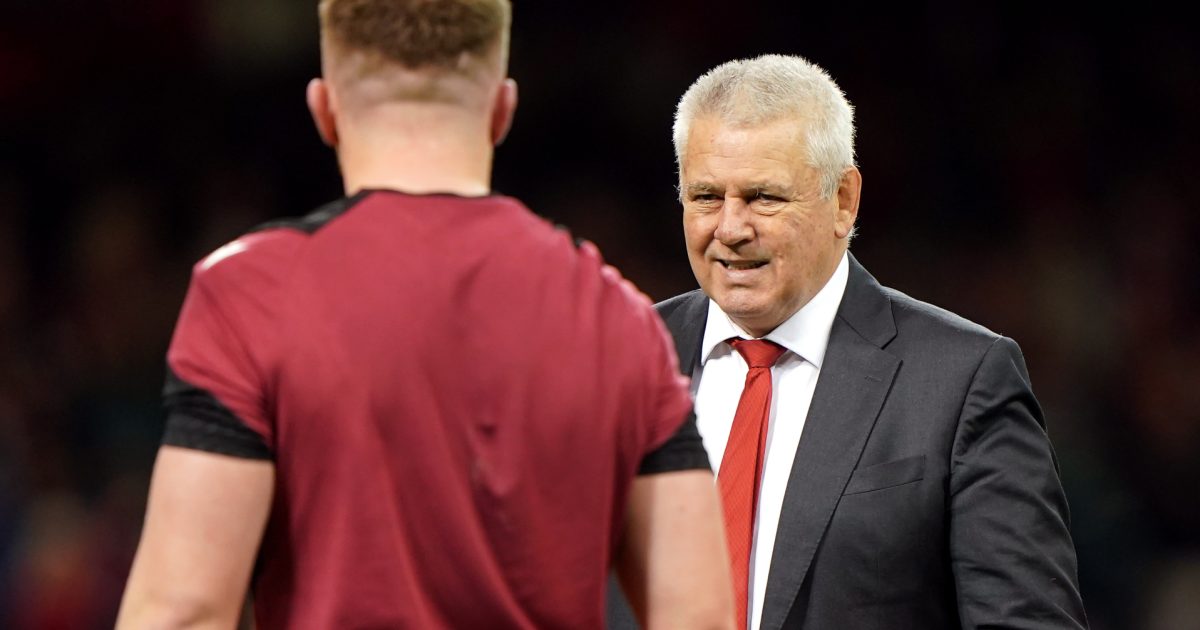Warren Gatland faces the biggest challenge of his coaching career after Wales’ alarming demise was confirmed by a first Six Nations wooden spoon for 21 years.
Wales finished seven points adrift of fifth-placed Italy following the Azzurri’s 24-21 victory in Cardiff, which was their 14th defeat in the last 16 Six Nations games.
They have lost seven successive matches in the tournament at home, and Gatland has a miserable 10 per cent Six Nations win-ratio since he returned for a second stint as head coach.
During his trophy-laden first spell in the job between 2008 and 2019, Wales won Six Nations titles, Grand Slams, reached two World Cup semi-finals and were briefly the world’s number one-ranked team.
There are significant mitigating factors behind Wales’ slump, including Dan Biggar, Leigh Halfpenny and now George North retiring from Test rugby, Jac Morgan, Taulupe Faletau and Dewi Lake all recovering from long-term injuries, Louis Rees-Zammit quitting rugby union to pursue a possible American football career and Liam Williams playing club rugby in Japan.
But much of their performance against Italy was scarred by schoolboy errors and a chronic lack of composure. In truth, Italy were at least 20 points better.
Wales’ post-World Cup rebuild has witnessed some green shoots, notably the arrival of newcomers like full-back Cameron Winnett and flanker Alex Mann, while they threatened an unlikely comeback win against Scotland, ran England close and were competitive for an hour before subsiding to France.
The Italy performance, though, illustrated how big Gatland’s task is. Wales’ next game is against world champions South Africa in June, followed by a two-Test tour of Australia.
Asked if he was confident of turning things around, Gatland said: “Absolutely. I’ve never shied away from that.
“We have had glimpses where we have been really good in this tournament. We need to do that for longer periods.
“We need to start better in games and make sure we are more accurate.
“Probably the amount of turnovers in those games have allowed opposition teams some easy outs where they haven’t had to play too much rugby and have waited and relied on us shooting ourselves in the foot with some mistakes.
“We just need to win, don’t we. We need to get some confidence and self-belief, whether that is first of all at the national level, but also at regional level.
“When you start winning and get confidence, it makes a huge amount of difference.
“I know that the regions and (Welsh Rugby) Union are talking collectively and trying to put strategies in place for the future. That will make a huge difference to everyone.”
Gatland said he had offered his resignation – which was rejected – to WRU chief executive Abi Tierney immediately after the Italy game.
The painful Six Nations review process will now take centre-stage, in addition to starting preparations for some demanding assignments against heavyweight southern hemisphere opposition.
Gatland added: “There is planning to be done over the next few weeks, in terms of the summer tour and making sure as a coaching group we are visible in the regions as well.
“I can promise you we will go away and review this really carefully. We have already done some review stuff, and we will work on areas that need to improve.
“I think collectively we have all got a lot of work to do to make sure we can continue to improve the state of Welsh rugby.”






























